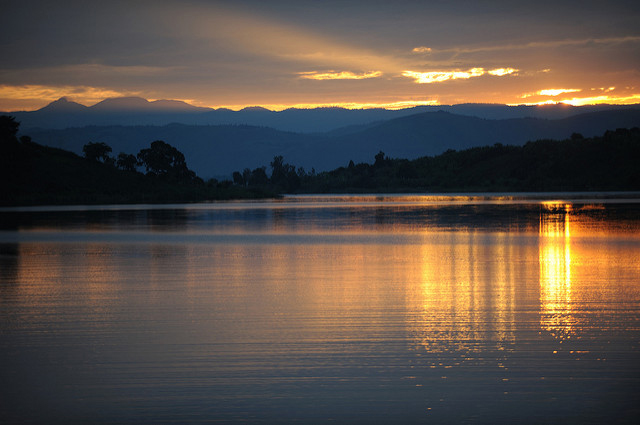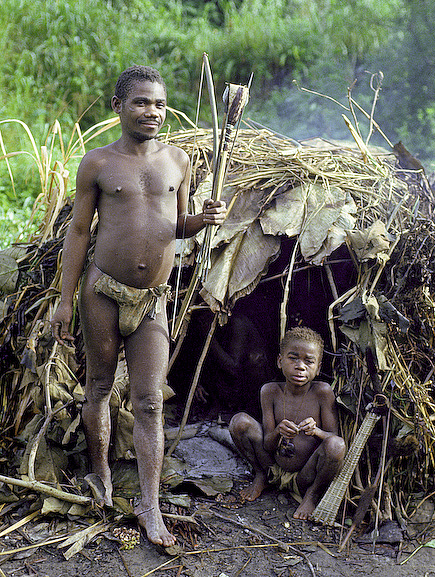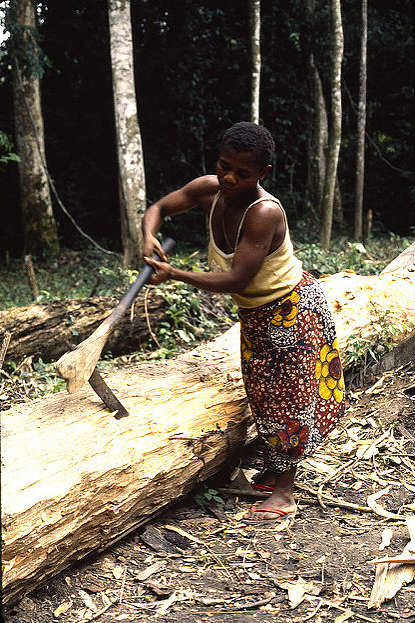Mbuti living on Idjwi Island must cope with discrimination and hardships in their struggle to survive on the fringes of Bantu society. A Reuters feature last week described the conditions that they endure and the causes of their troubles.

At 43 miles long and 131 square miles in area, Idjwi is the second largest island in Africa’s inland lakes. It is located on the eastern border of the D.R. Congo in the middle of Lake Kivu, one of the Great Lakes on the continent. The article last week estimated that about 7,000 Mbuti live among over 270,000 Bantu people on the island. While they have not suffered as much as the other pygmy peoples living in the interior of northwestern Congo from the incessant wars of the past several decades, they have had to endure discrimination from their Bantu neighbors and overlords. They are entering the sunset of their culture and society.
The Mbuti on Idjwi used to live in the forests but around 1980 Bantu people forced them out and took over their land for houses and farms. Without any education or experience for surviving in the alien society, they settled into refugee camps and were forced to try and cultivate non-arable lands on the coastal fringes of the large island.

Habimana, an Mbuti woman of 45, told Reuters, “before, in the forest, we had everything we needed for an easy and happy life: food, shelter, medicine, clothes.” She added, “it’s in our nature to live like that.”
Local Congo authorities denied to the reporter that anything had changed for the Mbuti. Gervais Rubenga Ntawenderundi, a customary Bantu chief, said that there are no problems between the two different societies. He added that the pygmies had always lived at the fringes of the Bantu villages as they do now, and that they “have never been driven out of the forest.” Other Bantu people insisted that the discrimination the Mbuti complain about is a result of the colonial period.
Adolphine Byaywuwa Muley, the minister of agriculture and the environment for Congo’s South Kivu Province, in which Idjwi is located, said that the basic problem for the Mbuti is that they don’t have their own land. Acting as the head of a local group seeking empowerment for indigenous women, she said she has not seen much progress since 2013. As a rejoinder, the customary Bantu authorities argued that the Mbuti sold their forest lands.

About 300 Mbuti live in the Kagorwa Camp on the island where they were resettled from their ancestral forests. Crops do not grow there. The children looked, to the reporter, to be undernourished and gaunt from their diet of “sombe,” cassava leaves boiled in water without even the addition of salt. The head of the camp said that that was all they had to eat—their days of eating birds, snakes, and game meat were gone.
Habimana, the Mbuti woman, said that she weeds the fields of a businessman who is building a hotel on the coast. But she earns only one-third as much as the other workers. As a result, she also has to sell pottery at a market to earn extra money. A fisherman, Manguist, told the reporter he had given up the idea of ever returning to their former forest existence, “but we don’t deserve this misery,” he added.
Ms. Muley argued that a general awareness of the situation endured by the Mbuti is growing. She said that the prevalent attitude, that the pygmy has less human value than the Bantu, is not helped by the fact that the pygmies themselves assume that discrimination is normal. But the official concluded that the indigenous people are learning: “that they have rights like everyone else.”